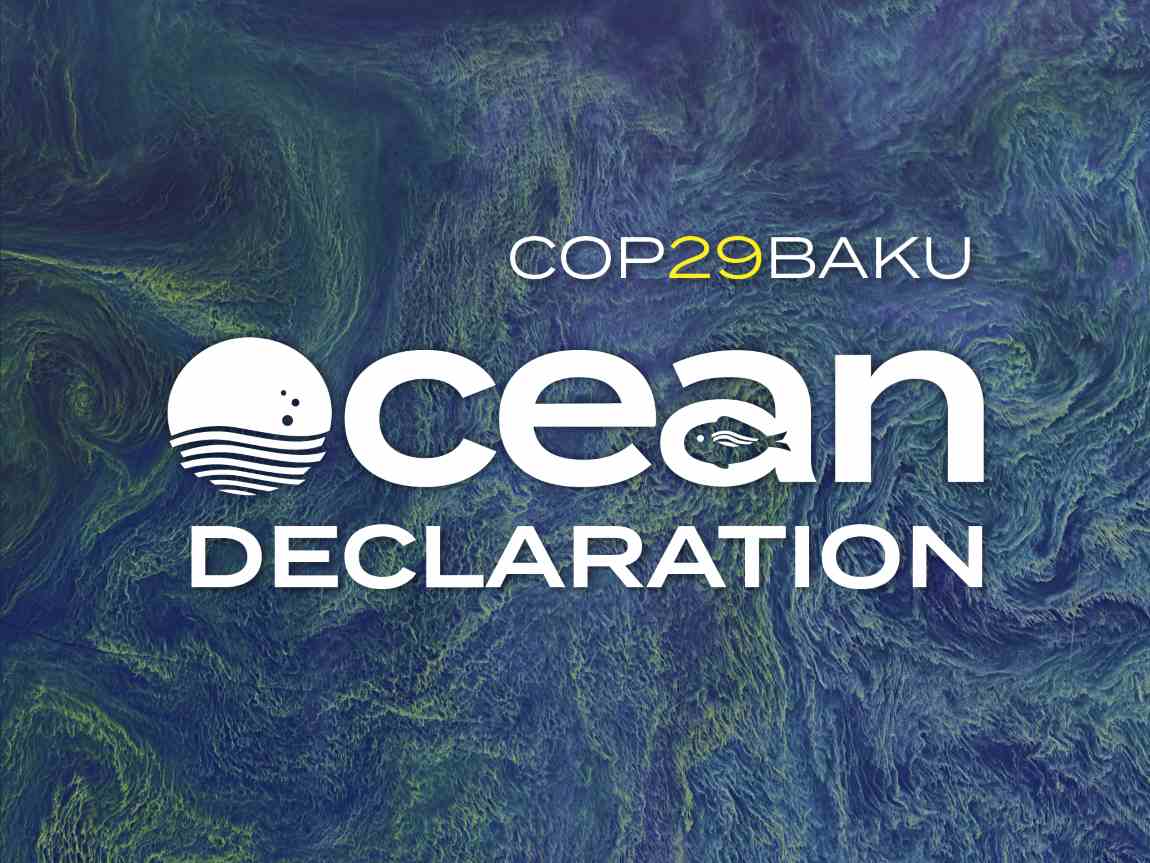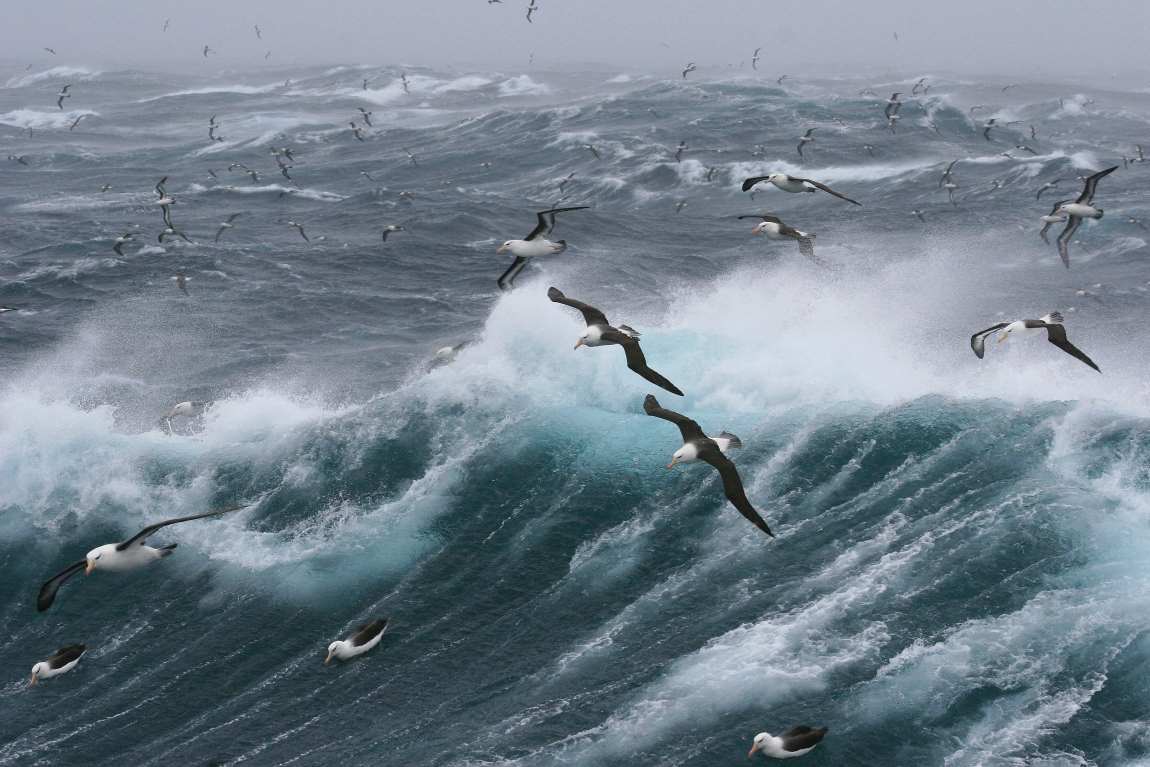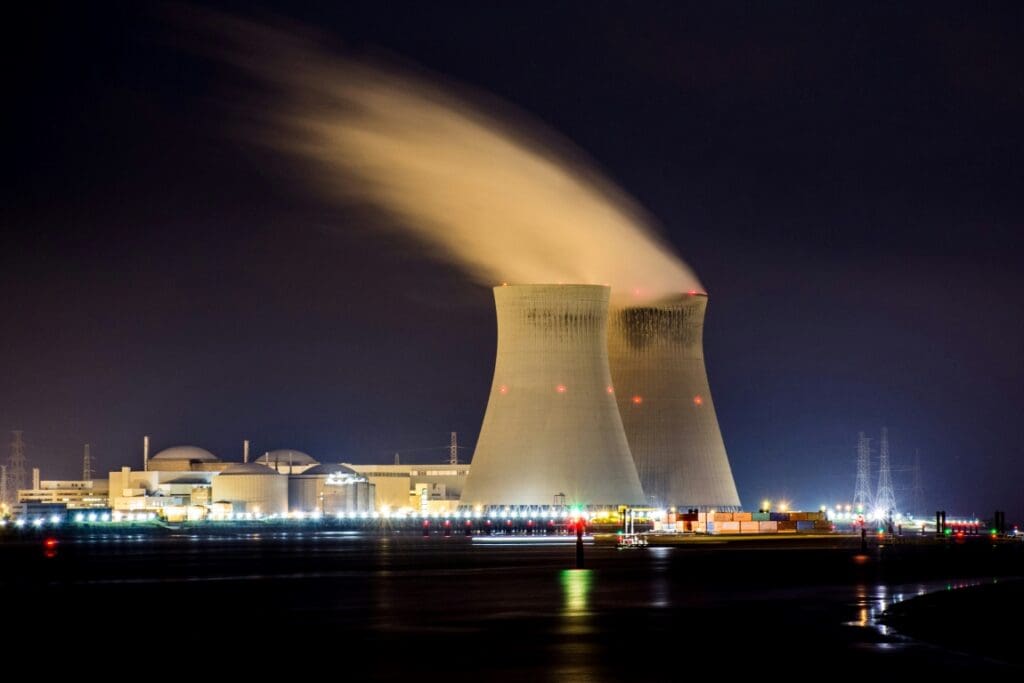Partners of the Ocean Pavilion are calling on world leaders to make robust, long-term investments in ocean observations, research, and mapping to support efforts that will help meet key objectives of UN conventions on climate, biodiversity, and desertification.
The Baku Ocean Declaration is being issued ahead of the 29th United Nations Framework Convention on Climate Change (UNFCCC) Conference of the Parties (COP29), being held in Baku, Azerbaijan, November 11-22.

The declaration emphasizes the crucial role that knowledge about the ocean plays in the well-being of people and communities, as well as the health of ecosystems worldwide. GEOMAR Helmholtz Centre for Ocean Research Kiel participates in this year’s Ocean Pavilion.
Professor Katja Matthes, GEOMAR Director: “The Global Stocktake for COP28 in Dubai last year showed that the world is heading towards 2,6 degrees Celsius rather than the 1,5 degrees set out in the Paris Agreement in 2015. We need to cut greenhouse gas emissions immediately and drastically. Meanwhile, we have to find solutions for residual emissions that cannot be avoided. Ocean research provides essential knowledge on natural and technical approaches to Carbon Dioxide Removal (CDR) and Carbon Capture and Storage (CCS) so that the ocean can help us in the fight climate change. We call on world leaders to support this research and to promote activities that protect the ocean.”
Peter de Menocal, President and Director of Woods Hole Oceanographic Institution: “Our future relies on humanity making smart decisions on how to manage the ocean. And making smart decisions demands that we have the best scientific information possible about the ocean and the many ways it affects everyone on the planet. Long-term, multi-scale ocean observations provide the critical data necessary to ensure a sustainable future for all.”
The ocean has absorbed more than 90 percent of the excess heat and almost 30 percent of the excess carbon dioxide caused by human activity. As a result, the ocean’s continued health will determine the magnitude and rate of such factors as sea-level rise, increasing atmosphere and ocean temperatures, changes to the hydrological cycle, trends in ocean acidification and deoxygenation, ecosystem and biodiversity declines, and severe weather events.
Despite this, international investment in ocean observing systems has not kept pace with the need for information to guide climate adaptation efforts and other critical decisions.
Margaret Leinen, Director of Scripps Institution of Oceanography at UC San Diego: “The ocean has an outsized impact on global climate even when it comes to desertification and is impacted itself by climate change. At least half of macro-organisms on the planet are marine. Most have not even been discovered, much less named, so ongoing discovery of the system supporting life on Earth is imperative to say the least.”
The Intergovernmental Panel on Climate Change (IPCC) has concluded that the world must take coordinated action to avoid exceeding 1.5°C increase over pre-industrial temperatures – a key threshold that climate scientists say staying below will avoid the most severe effects of climate change.
At the same time, there is growing interest in the many opportunities that the ocean offers, including methods to mitigate rising greenhouse gasses in the atmosphere, adapt to current and future climate change, and build a healthy blue economy that benefits humanity and protects critical ecosystems.
The COP29 Baku Ocean Declaration calls on the parties of the UN Climate Conference and beyond to adopt measures to improve observations of critical ocean variables to preserve these benefits and includes key points for negotiators and attendees to consider in discussions during the two-week long conference. In addition, the Declaration highlights opportunities that improved observations offer in addressing the interconnected objectives of the UN conventions on climate, biodiversity, and desertification, known collectively as the Rio Conventions.
Specific efforts spelled out in the COP29 Baku Ocean Declaration include:
- Expand international collaboration to achieve progress in addressing the Earth’s climate, biodiversity, and freshwater crises.
- Enhance public and private funding to scale-up and diversify support of long-term ocean observation, research, and innovation for decision-making.
- Build capacity and access, particularly in small-island developing states, low-lying coastal regions, and other under-represented people and places to further develop ocean data, knowledge, and innovation.
- Improve awareness of the ocean’s role in planetary systems and the need for its preservation as a vital step towards mobilizing decision-makers to prioritize ocean protection and restoration.
GEOMAR is collaborating partner in the Ocean Pavilion at COP29.
Background
The Ocean Pavilion is organized by the Woods Hole Oceanographic Institution and UC San Diego’s Scripps Institution of Oceanography. It is a dedicated space in the Blue Zone at COP29 that returns for a third year to put the ocean center-stage at a crucial time in international climate negotiations.
The pavilion brings together diverse and influential partners who will call for ocean-focused solutions to be recognized as critical in the world’s response to the climate crisis. Throughout the two-week conference, the pavilion will feature more than 50 events to stimulate discussion on a wide range of topics related to the future of the ocean.
Visitors will also be able to learn more about the work of Ocean Pavilion partners and to speak with scientists, thought leaders, and students engaged in the search for solutions to some of the world’s most pressing challenges.
Article Source:
Woods Hole Oceanographic Institution – Press Release | GEOMAR – Press Release
Featured image credit: Fer Nando | Unsplash




